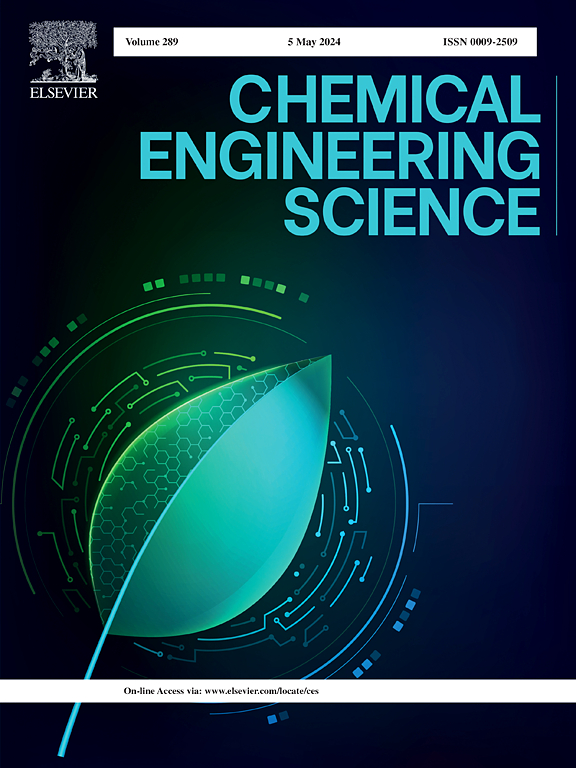Ionic liquid-based hybrid acidic catalysts enabling phase splitting and reactive separation for methyl esterification of long-chain fatty acids
IF 4.1
2区 工程技术
Q2 ENGINEERING, CHEMICAL
引用次数: 0
Abstract
Developing catalysts enabling reactive separation is a promising strategy to enhance reaction and separation efficiency of esterification processes. Herein, we designed a class of hybrid catalysts with p-toluenesulfonic acid (PTSA) as main catalyst, and hydrogensulfate ILs as support catalyst and extractant. Using the designed catalysts for methyl esterification of long-chain fatty acids, phase splitting can occur, resulting in ester-rich and catalyst-rich phases. Under optimal conditions, the conversion of palmitic acid (PA) gives methyl palmitate (MP) yield of 98.2 % in 3 h at 348.2 K. The catalysts are also applicable for effective conversion of other long-chain fatty acids and can be facilely recycled through liquid–liquid separation without loss of activity. COSMOtherm and Gaussian calculations were performed to rationalize the reactive separation behavior of the designed catalysts. The kinetic and thermodynamic properties of the esterification reaction were also examined using pseudo-homogeneous (PH) model with non-ideality corrections.


离子液体基混合酸性催化剂可实现长链脂肪酸甲酯化的相分离和反应分离
本文章由计算机程序翻译,如有差异,请以英文原文为准。
求助全文
约1分钟内获得全文
求助全文
来源期刊

Chemical Engineering Science
工程技术-工程:化工
CiteScore
7.50
自引率
8.50%
发文量
1025
审稿时长
50 days
期刊介绍:
Chemical engineering enables the transformation of natural resources and energy into useful products for society. It draws on and applies natural sciences, mathematics and economics, and has developed fundamental engineering science that underpins the discipline.
Chemical Engineering Science (CES) has been publishing papers on the fundamentals of chemical engineering since 1951. CES is the platform where the most significant advances in the discipline have ever since been published. Chemical Engineering Science has accompanied and sustained chemical engineering through its development into the vibrant and broad scientific discipline it is today.
 求助内容:
求助内容: 应助结果提醒方式:
应助结果提醒方式:


